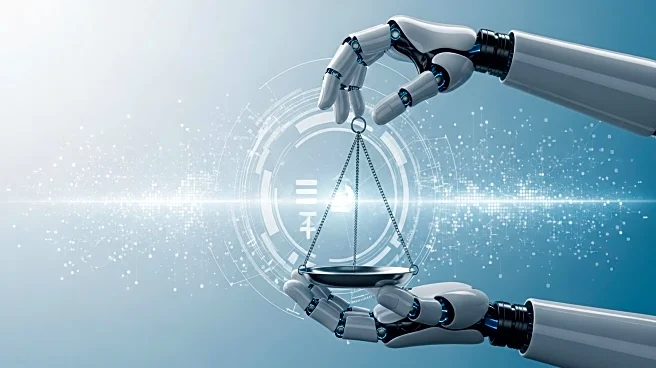What is the story about?
What's Happening?
Artificial intelligence (AI) is being explored as a tool to advance gender representation in marketing, potentially accelerating the gender revolution in advertising. AI can analyze sentiment and behavior patterns across diverse female demographics, identifying unconscious gender biases before campaigns launch. This technology offers the possibility of moving beyond traditional gender stereotypes, such as the 'strong woman in a power suit' trope, by providing nuanced insights into how different female audiences respond to messaging and imagery. AI-powered analysis of social listening data can capture authentic conversations among women across various communities, ages, and life stages, offering a broader perspective than traditional demographic research.
Why It's Important?
The integration of AI in marketing could significantly impact how gender is represented in advertising, potentially leading to more inclusive and diverse portrayals of women. By identifying and addressing unconscious biases, AI can help brands create campaigns that resonate more authentically with female audiences. This shift could enhance brand loyalty and consumer engagement, as audiences increasingly demand representation that reflects their experiences and identities. However, the use of AI also carries risks, as algorithms may inherit biases from their training data, potentially perpetuating stereotypes if not carefully managed.
What's Next?
Brands aiming to lead the next phase of the gender revolution in marketing will need to approach AI with both ambition and caution. This involves investing in diverse teams to build and audit AI systems, regularly testing algorithms across different female demographics, and using AI to augment human cultural understanding. The successful integration of AI in marketing requires constant vigilance to ensure that the technology enhances rather than undermines progress in gender representation.
Beyond the Headlines
The ethical implications of using AI in marketing are significant, as the technology could either reinforce or dismantle existing gender stereotypes. Brands must navigate the balance between leveraging AI's analytical power and maintaining human wisdom about culture and equality. The future of gender representation in marketing will depend on how well AI is integrated with human insights to create campaigns that authentically represent the full spectrum of women's experiences.















